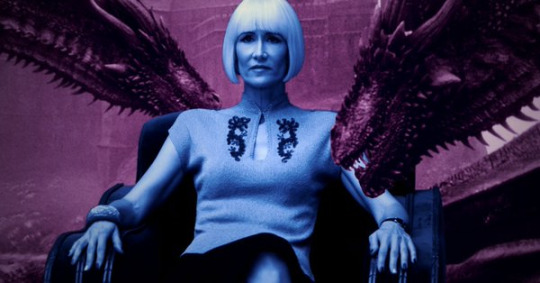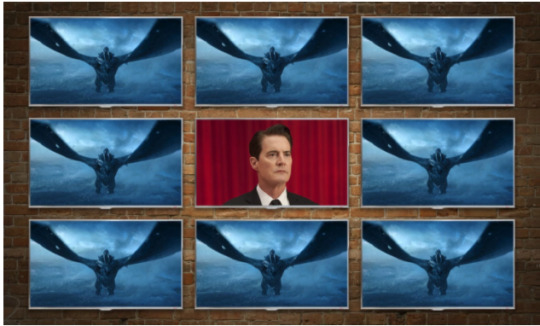#also 7 minutes of incest the blueprint
Explore tagged Tumblr posts
Text
coming out to say I think the ending was evil as balls and horrible to sam why'd you force him to live intrinsically broken inside and hollow living for the longest soul-decaying while without the person he loves most waking up every day and going goddammit not again while becoming a shell of a human it's almost sadistic why'd you do this to him
#having an apple pie life could have been ideal at the beginning if dean never showed up at his door in Stanford#but he did and they went through so much sam's priorities and who he is completely shifted#at the risk of sounding corny at the beginning if it could be measured#sam was 80% him 20% family and stuff#by the end he was left with 80% dean and him 20% void#it's simply not the same#seeing him live an excruciatingly long life alone knowing he's not emotionally present the half of it and his greatest wish is to die#that's tragic#truly when we dead awaken#samdean#sam winchester#mine#dean is equally fucked up for forcing this on sam too#sorry the montage in the bunker is anything but typical grief one could perfectly recover from#that said I love the finale for what it was (the barn scene samdean being domestic sam living a tragedy and them reuniting)#not a single person who is balls against the wall hating it can come up with a better ending if not straight up dogshit scenarios#It's not perfect I'm sure no one could've delivered one full-fledgedly rewarding except kripke but it was great for what's it worth#It was focused on sam and dean especially sam wasn't sidelined like he been for a while and that's the win I'll live and die with#spn#supernatural#also 7 minutes of incest the blueprint
10 notes
·
View notes
Photo


TwinPeaks #While you were watching summer’s biggest TV show, you missed summer’s best TV show
By Hank Stuever TV critic
A curious thing happened on the way to television greatness this summer: The highly anticipated return of a critically revered show that some viewers might avoid because of its reputation as a melodramatic, even lugubriously indulgent mess of complicated story lines instead turned out to be a stunning rumination on heroic good and innate evil, told through a refreshingly coherent, expertly paced plot that managed to keep its loyal fans and curious newcomers guessing the entire way.
At the same time, another show, also feverishly awaited and already occupying its rightful spot on the list of TV’s most provocative and original series, sacrificed nearly all of its slowly divulged, carefully constructed mythology in the name of predictable plot and implausible incident — so much plot and so much incident that its biggest fans groaned in mutual misery every week, wondering if their favorite show had, after so long, turned itself into a cheap and even pretentious facsimile of the original material.
So, which show is “Game of Thrones” and which show is “Twin Peaks: The Return?”
In terms of pure satisfaction and elevation of the form, it’s no contest: Showtime’s “Twin Peaks,” David Lynch and Mark Frost’s 18-part sequel to their long-shelved ABC series, has been a quiet yet profound triumph, splendidly fulfilling a promise made 27 years ago.
A two-episode conclusion will air this coming Sunday with Lynch’s daffiest ducks lined up in neat precision and ready for their swan song, perhaps at the possibly interdimensional roadhouse called the Bang Bang Bar on the outskirts of fictional Twin Peaks, Wash. I find myself truly sorry to see “Twin Peaks” go, and even apologetic for the doubts I’d cast upon its revival during the hype that preceded its May premiere. (My only excuse? Reboot fatigue.) And I note that for all its greatness, “Twin Peaks” struggles now to get more than a few hundred thousand viewers to watch each week. Ratings-wise, it looks like an expensive disaster.
“Game of Thrones,” meanwhile: Yeesh, right? After Sunday’s season 7 finale on HBO, there’s little need to list the gripes of its 16 million viewers, except to boil down the biggest criticism, which have to do with pace. Although it has one season left, “Game of Thrones” this time acted like a show in a terrific hurry to be done with us.
Characters who’ve never met — or who haven’t seen each other in years — were suddenly visiting one another all the time. Journeys and story lines that used to take months to complete (whether during entire seasons of the show or within hundreds of pages of George R.R. Martin’s thick novels) now seem to take a few minutes, as if the imaginary medieval continent of Westeros had acquired a system of bullet trains, or perhaps a wooden version of Elon Musk’s people tubes. That, or Westeros was suddenly reduced to the size of Rhode Island.
In its rush, “Game of Thrones” laid bare its most obvious weakness, in that it is now two seasons ahead of where Martin stopped writing his most recent book. Although the show aptly avails itself of the richness and backstories that exist in the “Game of Thrones” blueprint, it has unfortunately given in to the temptation to be just another hit TV show — specifically, a soap opera. Thishappens, then this happens, and then you’re not going to believe it when thishappens! It all happens faster than even superfan Leslie Jones can tweet about it.
Don’t waste your last bit of ice flame in defense. “Game of Thrones” is still one hell of a soap opera — and perhaps that’s all it ever was beneath all the texture and time, even back in its more glorious stretch of the slow build. Many of us, having bent the knee years ago, will remain loyal to the show until it ends, no matter who gets killed off or who sleeps with their aunt or nephew or brother or sister. And the point of a slowly built drama is that it must eventually reach a frantic, breathless climax, no? Isn’t that the point of good sex? (I mean, good television?)
Watching the show devolve, it’s funny to think back to 2013 or so, when “Game of Thrones” was on its third season and a converted critic had to counsel (i.e., beg) the doubters to only give it a shot; to not worry about its layers and characters, the many locations, the impossibly huge scope. The promise was that once you watched enough of it, “Game of Thrones” would take you and transport you; once you gave in to it, it would magically cohere, and, in addition to feeling entertained, you would feel the adrenaline breakthrough that marathon runners tend to go on about just before they pass out from delirium. The journey supplants the suffering; the miles become transcendent.
***
That’s what good TV is all about — and it’s the very experience that we happy few get by sitting still and letting “Twin Peaks” patiently insert its epic strangeness into our minds. By the time Part 8 aired in July, Lynch took viewers on a hypervisual (and hyper-aural), hour-long trip back to 1945 and the first detonation of an atomic bomb, in New Mexico. As the camera delves into the split atom, the viewer senses, through sound and image, an unleashing of evil that personifies itself in the elusive “Bob,” who now occupies the corporeal form of one of two Dale Coopers; followed by the suggestion that other forces can temper such occurrences by creating virtuous creatures (Laura Palmer, perhaps?). Confounding, marvelous, unforgettable: That episode alone would be a hit as a video installation in a contemporary art museum, played on a constant loop.
I realize that doesn’t sound like everyone’s idea of a swell time (are there dragons? Battle scenes? Rapey incest?), but “Twin Peaks” actually did what “Game of Thrones” used to do: It took us somewhere entirely new, on its own creative terms and using its own visual language. Like “Game of Thrones,” it required that we pay attention and even do our homework (“Siri, who is Tycho Nestoris?” “Never mind, Siri — who is Phillip Jeffries?”). It rewarded expertise while rewarding a more casual viewer with a thrill ride.
This season, “Game of Thrones” abandoned those traits and became just another TV show — some color-coded index cards arranged on a bulletin board in a writers’ room, each card representing its own holy-crap moment in a season overburdened with holy-crap moments, rather than honoring the whole of the work.
And yet, despite this muddying of the brand, this summer was the where we showed up in droves for “Game of Thrones” — stood in lines to get into “Game of Thrones” pop-up bars, spoke in “Game of Thrones” shorthand, tweeted up a storm and aggravated uninterested colleagues to the point where they started penning backlash essays with such titles as “No, I don’t watch ‘Game of Thrones,’ so please stop asking.” This is the summer we GoT’d ourselves to death. And who could blame us? Poke out of your bunker for a moment, have a look around at the world, and crawl back down and close the lid.
And so it happens that while America spent its summer watching TV’s biggestshow, it unfortunately missed TV’s best show. While “Game of Thrones” chose simple paths and explosive set pieces, “Twin Peaks” promoted and celebrated every quality we TV purists say we most want from the medium: It challenged us, surprised us and rewarded the minds that were the least inert and the most open.
Here, the art of the slow build was very much in force, making viewers wait nearly forever for one of its most satisfying and stirring scenes, when — and if you’re not caught up, stop reading now — at last, in the most recent episode, the real FBI Agent Dale Cooper (Kyle MacLachlan, who has given an above-and-beyond performance this time) snapped out of his Dougie Jones fugue state in Las Vegas and started giving orders and plotting his return to Twin Peaks, ostensibly to face down his evil doppelganger. (“Finally,” said the poor One-Armed Man from his vantage point in the Black Lounge.)
The goose bumps? The thrills? The astounding visuals? The thematic crescendo? The supernatural uses of magic? The epic payoff?
Yep, it was all there — same night, different channel.
Twin Peaks: The Return (two hours) concludes Sunday at 8 p.m. on Showtime.
LINK (TP)
12 notes
·
View notes